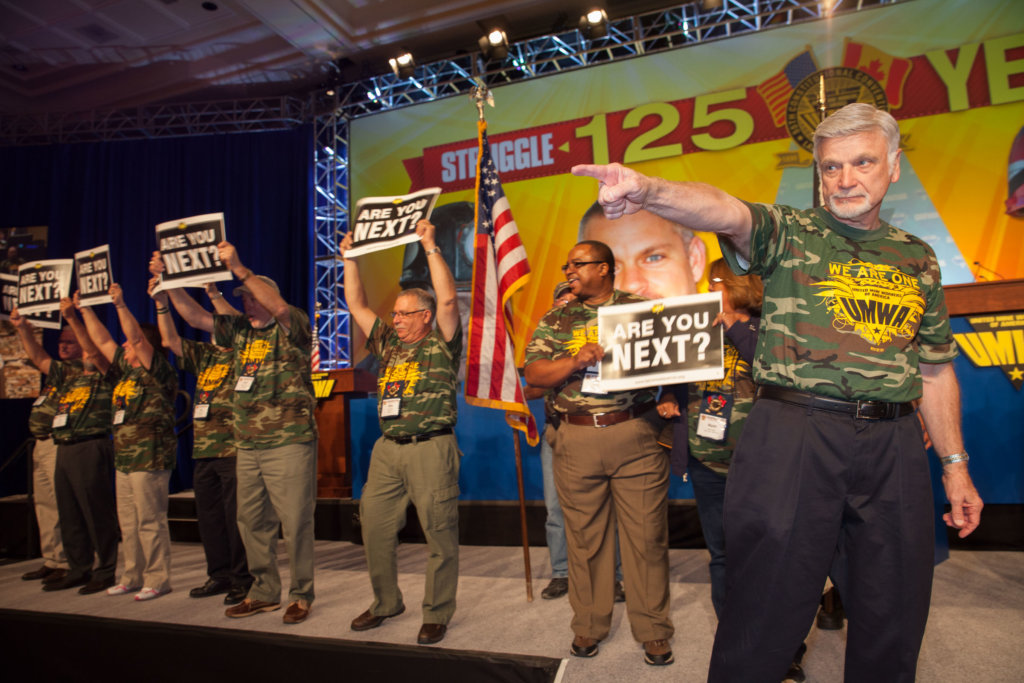Source: The Columbus Dispatch
WASHINGTON — Denny Pickens spent more than 43 years working in coal mines in anticipation of the prize at the finish line: the pension he’d spent four decades working for.
Now, with that pension in danger, the 66–year–old from Wheeling, West Virginia, will head to Columbus on Thursday with a singular message: Let me keep that pension.
“These pensions are what keep us going and all we worked for,” he said. “We have to have these. This money isn’t fun money. This is money that pays our bills.”
That same urgency will drive other retirees to Columbus for a rally Thursday that may draw thousands. On Friday, there will be a field hearing of a bipartisan joint congressional committee tasked with solving a pension crisis that has put at risk the pensions of about 1.5 million retirees and active workers.
The committee, made up of four Republican senators, four Democratic senators, four Republican House members and four Democratic House members, chose Columbus in part because of how deeply the state is connected to the crisis — 66,000 pensioners in at–risk plans are in Ohio — and partly because its co-chairman, Sen. Sherrod Brown, is from Ohio. Sen. Rob Portman, R-Ohio, is also a member of the committee. The hearing is scheduled for 2 p.m. at the Statehouse.
The hearing is coming at a critical point in the committee’s work. By the end of the month, the committee will conclude the fact-finding part of its investigation and move on to finding a solution.
That solution, due in November, must be virtually bulletproof: It has to be approved by five out of eight members of each party on the committee and then pass both the House and the Senate by an up-or-down vote, with no amendments allowed.
The stakes are high, and if a solution isn’t found, so is the potential for catastrophe.
“There is no easy solution,” said Brown, a Democrat who fought for creation of the committee. “If there were an easy solution, Congress would’ve done it a long time ago.”
But failure, he said, would mean businesses on the hook to pay pensions could be at risk, retirees could lose money and the Pension Benefit Guaranty Corporation — the federal entity that insures pensions — could go under.
At issue are about 150 to 200 of the 1,400 multi-employer pension funds in the nation, created by companies that pooled their resources to provide their employees with retirement funds. For years, most of the plans ran at a surplus, but the recession, combined with corporate bankruptcies and a rash of baby-boom retirements, has taken a toll on the solvency of the pension plans.
Those who watch the issue worry that if those 150 to 200 plans go under, the others could fall like dominoes — creating the potential for a catastrophe that could impact a vast swath of the economy.
“The only thing we know is that nobody knows for sure” what will happen if the plans fail, said Aliya Wong, executive director of retirement policy at the U.S. Chamber of Commerce.
“This isn’t just a retiree problem,” Wong said. “It’s a business problem, and it’s a jobs problem.”
She and others see few solutions that don’t involve some sort of loan program that would help offset the potential for catastrophe. But Republicans have been resistant — part of the reason the committee was set up was because a bill Brown introduced — the Butch Lewis Act, named after a Cincinnati–area retiree who died fighting for his pension — stalled in the Senate. That bill would have created a low-interest, 30-year federal loan to troubled pension plans, with no cuts to retiree benefits.
Portman, meanwhile, admits there’s a “fault line” between Republicans and Democrats on the issue, with Republicans opposing a loan program and Democrats saying the solution should be a loan program.
“My role has been from the start that we have to take the two points of view and reconcile them,” he said.
He said any solution that does not involve what he calls “shared responsibility” will likely “not stand the test of time.”
The very structure of the committee, with an equal number of representatives from both parties, “is very challenging,” Portman said, and the timing — the solution is to be presented around Election Day — does not help. “But that’s what we have to work with,” he said.
He is not the only one worried. Mike Walden, president of the National United Committee to Protect Pensions, said he sees the current process “as being deadlocked.”
Walden, one of six scheduled to testify at Friday’s hearing, said the only solution likely to pass would be one with “shared responsibility” — a solution that would involve pensioners giving up some of their pensions and employers as well as taxpayers also kicking in.
“Nobody is going to be 100 percent happy on this,” he said.
Written by: jwehrman@dispatch.com


